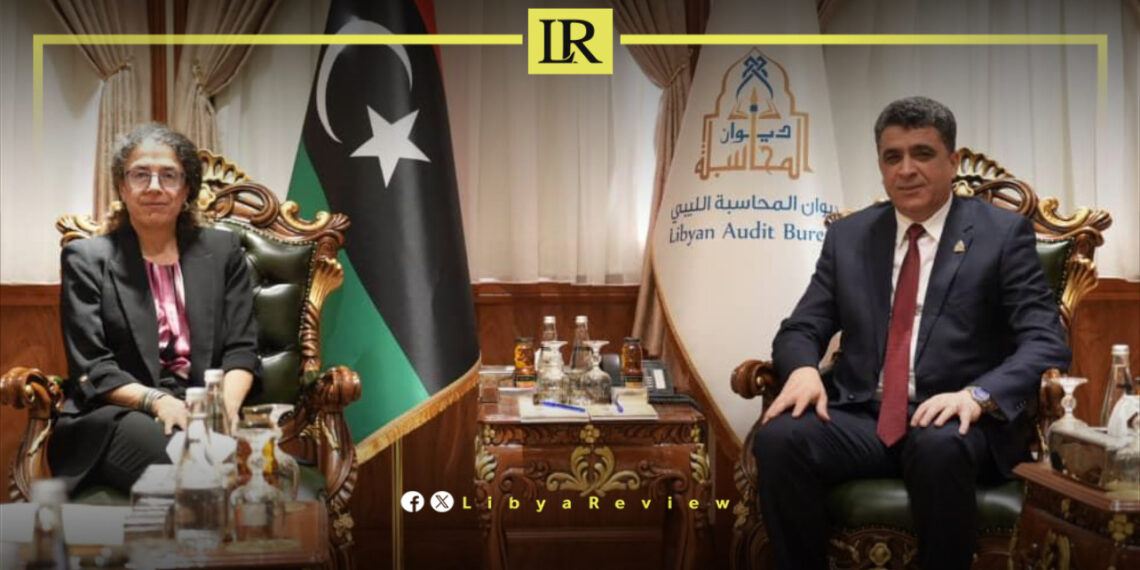In a recent meeting, the President of Libya’s Audit Bureau, Khaled Shakshak, and the Acting Head of the United Nations Mission in Libya, Stephanie Khoury, emphasised the need for unified and robust oversight bodies, as well as an independent judiciary, to support Libya’s path toward stability.
During the discussions, Shakshak and Khouri highlighted the importance of enhancing transparency, accountability, and good governance to ensure that Libya’s resources are utilized effectively for the benefit of its citizens.
They acknowledged that a consolidated oversight mechanism would be instrumental in promoting public confidence in Libya’s institutions and facilitating sustainable governance.
Khoury had previously met with the Governor of the Central Bank of Libya, Najib Issa, where she praised the bank’s recent measures aimed at stabilizing the Libyan dinar and alleviating the cash liquidity crisis affecting the country.
This focus on economic and administrative reforms aligns with Libya’s broader goal of establishing a secure and efficient financial system that serves the country’s development needs.
Libya has been in chaos since a NATO-backed uprising toppled longtime leader Muammar Gaddafi in 2011. The county has for years been split between rival administrations.
Libya’s economy, heavily reliant on oil, has suffered due to the ongoing conflict. The instability has led to fluctuations in oil production and prices, impacting the global oil market and Libya’s economy.
The conflict has led to a significant humanitarian crisis in Libya, with thousands of people killed, and many more displaced. Migrants and refugees using Libya as a transit point to Europe have also faced dire conditions.
The planned elections for December 2021 were delayed due to disagreements over election laws and the eligibility of certain candidates. This delay has raised concerns about the feasibility of a peaceful political transition.
Despite the ceasefire, security remains a significant concern with sporadic fighting and the presence of mercenaries and foreign fighters. The unification of the military and the removal of foreign forces are crucial challenges.


